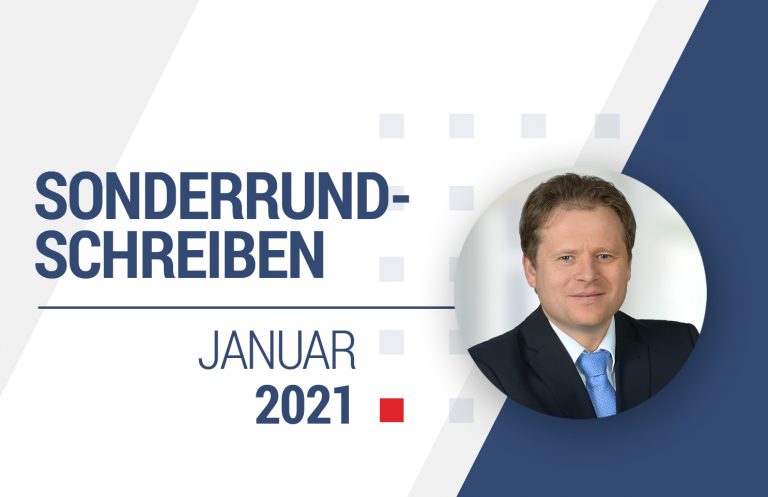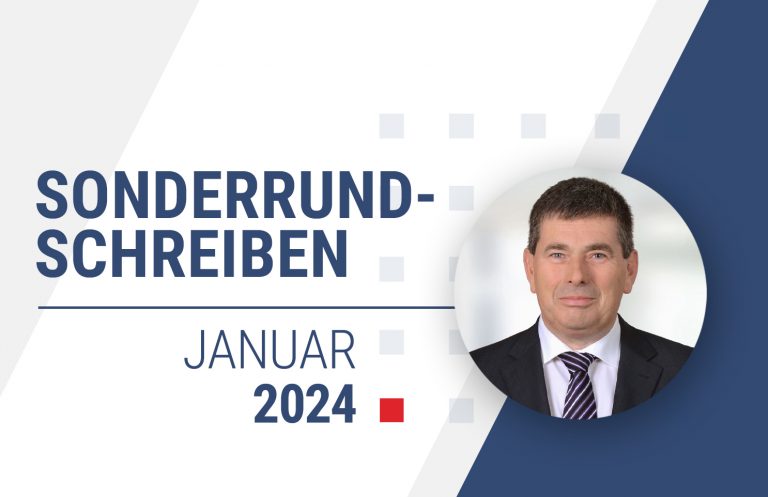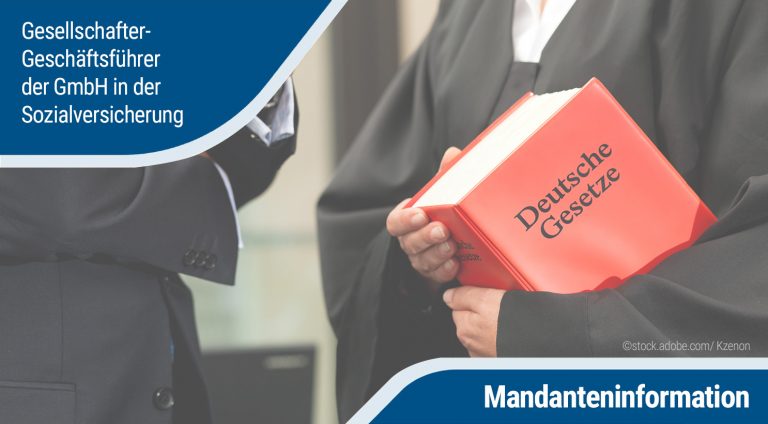Zur deutschen Version des Newsletters geht es hier / Click here for the German version of the newsletter
What is it about?
An increasing number of small and medium-sized enterprises have a cross-border structure, in which, for example, German companies have outsourced parts of their operational functions (e.g. research, development, production, sales, financing, management services, etc.) to affiliated com-panies or business facilities abroad or, conversely, foreign companies carry out parts of their value-creating processes and functions in Germany by means of affiliated company units
These structures have in common that there are company units in different countries that are directly or indirectly linked to each other to a relevant extent in terms of capital, personnel, or facts and are, therefore, subject to a uniform decision-making process. These company units exchange goods and services across national borders. It is also characteristic that the associated exchange of goods and services are carried out with conditions – in particular prices – not agreed upon in the free market between third parties but are set by the controlling decision-makers in the group of companies. As different tax jurisdictions are affected by cross-border transactions, they each have an interest in ensuring that the individual business relationships between the affiliated companies take place at conditions that would exist on the market between unrelated third parties to avoid arbitrary profit shifts and thus an influence on tax revenue.
Due to this initial situation, most countries – including Germany – have introduced obligations to record the detailed circumstances of intra-group business relationships and the considerations involved in determining the necessary transfer prices in so-called transfer pricing documentation and to keep this documentation accessible for review by the respective tax authorities.
In Germany, a corresponding obligation was already introduced by law on 1.1.2003 and subsequently further specified in national legislation through the adoption of further developments in this regard at international level – above all through initiatives by the OECD (Organisation for Economic Co-operation and Development).
The fulfilment of the corresponding obligations should be urgently observed by the companies concerned, as transfer pricing documentation that has not been prepared or is incorrect can have considerable tax consequences.
Who is affected?
In principle, all domestic taxpayers (sole proprietorships, partnerships, corporations etc.) with business relationships with related parties abroad are affected.
Domestic taxpayers are those who have their residence or permanent stay (natural persons) or their registered office or place of management (corporations) in Germany and are therefore subject to unlimited tax liability in Germany. Business relationships in this sense are cross-border transac-tions of any kind, in particular deliveries of goods, provision of services, transfer of material and financial resources as well as know-how. In this context, the term „related party“ primarily refers to cases in which either the domestic taxpayer has a direct or indirect shareholding of at least 25% in a foreign taxpayer or, conversely, a foreign taxpayer has a direct or indirect shareholding of at least 25% in a domestic taxpayer, whereby the close relationship may also result from other circumstances.
What are the contents and the size criteria?
Country-related, Company-specific Documentation „Local File“
Size criteria
Turnover of a taxpayer from deliveries of goods with related parties: EUR 6 million
(Summation of incoming and outgoing deliveries p.a.) or alternatively
Turnover of a taxpayer from other services with related parties: EUR 600.000
(Summation of incoming and outgoing provision of services p.a.)
If a taxpayer exceeds one of the aforementioned criteria in the course of a financial year, the tax-payer is obliged to prepare a Country-related, Company-specific Documentation „Local File“ from the beginning of the following financial year on. If both of the aforementioned criteria are not met in a financial year, the obligation to prepare the “Local File” ceases to apply from the beginning of the following financial year on.
Contents
The following information must be provided:
In a documentation of circumstances:
– General information on the shareholding structure, business operations and organisational structure
- Presentation of the shareholding structure
- Description of the circumstances of the close relationship
- Description of the organisational and operational group structure
- Description of the management structure
- Description of the areas of activity and business strategy
− Records of the taxpayer’s business relationships
- Description of business relationships, type and scope, overview of contracts
- List of significant intangible assets and their transfer for use
− Function and risk analysis
- Information on functions performed and risks, material assets used, agreed contractual terms, selected business strategies
- Description of the value chain
In a documentation of appropriateness:
− Transfer pricing analysis
- Record of the time of the transfer pricing determination
- Record of information relevant to transfer pricing at the time of transfer pricing determination
- Presentation of the transfer pricing method applied
- Justification of the appropriateness of the transfer pricing method applied
- Documents on the calculation of the selected transfer pricing method
- Listing and description of comparable internal or external business transactions
Extraordinary business transactions must also be recorded separately, such as the conclusion and amendment of long-term contracts with a significant impact on income, asset transfers as part of reorganisation measures, transfer, and surrender of assets in the course of changes in function and risk, significant changes in business strategy and the conclusion of allocation contracts. The relevant records must be prepared „promptly“, i.e. within a period of six months after the end of the financial year in which the transaction took place.
If the above-mentioned size criteria are not exceeded (total sales of goods with related parties of less than EUR 6 million and total provision of other services with related parties of less than EUR 600,000), a formal transfer pricing documentation does not need to be prepared and submitted in writing. However, the taxpayers in question are still obliged to provide the above-mentioned information orally or in another manner at the request of the tax authorities. Only the requirement to set up and maintain a formal „Local File“ in written form does not apply.
Core Documentation “Master File”
Size criteria
Turnover of a taxpayer: EUR 100 million
(Summation of turnover with third parties plus turnover with related parties p.a.)
If the aforementioned criterion is met or exceeded by a taxpayer in the course of a financial year and there is at least one business relationship with a related party abroad, the obligation to prepare a master file comes into effect at the beginning of the following financial year. If the aforementioned criterion is not exceeded in a financial year, the obligation to prepare the master file ceases to apply at the beginning of the following financial year.
Contents
The master file is intended to provide the tax authorities with an overview of the type of global business activities of a multinational group of companies – to which the taxpayer belongs – and the system of transfer pricing applied. A multinational enterprise group consists of at least two related companies based in different countries.
In detail, the master documentation includes the following information:
- Graphical chart of the organisational structure and the geographical distribution of the companies and permanent establishments
- Overview of significant factors for the overall profit of the group of companies
- Description of the supply chains for the five products or services of the group of companies with the highest sales revenue
- Description of the supply chains for all other products and services that each account for more than 5% of sales revenu
- List and summary of the most important service agreements in the group of companies
- Description of the most important geographical markets
- Summarised functional and risk analysis with regard to the main contributions to the value chain in the Group
- General description of the Group’s overall strategy for intangible assets
- List of intangible assets in the Group
- Listing of important agreements in the Group
- General description of the Group’s transfer pricing policy in relation to research and development and intangible assets
- General description of how the group is financed
A taxpayer may also – provided that the aforementioned size criterion is met – use and submit a master file prepared by another related party of the same group of companies.
Country-by-Country Reporting
Size criteria
The Country-by-Country Report (CbCR) must be prepared by a group parent company in Germany whose consolidated turnover in the previous financial year is greater than or equal to EUR 750 million and whose consolidated financial statements include at least one foreign company. The report must be submitted electronically to the Federal Central Tax Office within one year of the end of the financial year being reported on. This obligation does not apply if the domestic company is included in the consolidated financial statements of another company.
Contents
The Country-by-Country Reporting (CbCR) aims to provide the tax authorities with an initial assessment of tax transfer pricing risks and other risks relating to profit shifting and profit reduction with regard to a group of related companies. The CbCR contains three tables.
The first table shows the country-by-country breakdown of revenue (broken down into revenue with third parties and related parties), profit before tax, income tax payable, recognised capital, retained earnings, number of employees and tangible assets.
The second table provides an overview of the main business activities of the individual related par-ties in the countries concerned. Where applicable in a country, the following are listed: research and development, ownership or management of intellectual property, purchasing or procurement, processing or production, sales-marketing-distribution, administrative or management services, provision of services to unrelated third parties, intra-group financing, insurance, ownership of investments and shares or dormant activities.
The third table optionally contains further information and explanations that the taxpayer deems necessary to understand the Country-by-Country Report.
Language?
The records (local file, master file, and CbCR) must always be prepared in the German language. The tax office may authorise deviations from this upon request. The application should be made before the records are prepared but must be made at the latest immediately after the tax office requests the records.
In practice, the submission of transfer pricing documentation in English is generally accepted. However, as described above, we recommend that this is formally requested from the tax office in good time to counter any objections from the tax authorities that the documentation has not been prepared or has not been prepared properly from the outset. The acceptance of records in English refers only to the transfer pricing documentation itself. Any documents to be submitted, such as contracts, register extracts, financial statements, etc., must be translated at the taxpayer’s expense at the request of the tax office.
Deadlines?
According to the legal situation valid until 31 December 2024, the submission of a Local File or Master File should only be requested as part of a tax audit. The submission must be made upon request within a period of 60 days. Records of „extraordinary business transactions“ (see above) must be submitted within 30 days of being requested by the tax office.
From 1 January 2025, the submission deadlines and the powers of the tax authorities to make requests will become significantly stricter. From this date, the tax office can request the submission of the relevant transfer pricing documentation (Local File or Master File) at any time – i.e. not only as part of a tax audit. The records must then be submitted within 30 days of the request (no longer differentiating between ordinary and extraordinary business transactions).
In addition, from 1 January 2025, taxpayers will be obliged to submit relevant parts of the transfer pricing documentation (Local File or Master File) within 30 days, if they only receive an order for a tax audit. An explicit request to submit the documentation is no longer required in this case.
Against this background, the obligation to submit the documentation within 30 days must therefore be expected at any time if the above-mentioned criteria are met, be it through an explicit request by the tax office or through the mere notification of a tax audit order (even without an explicit request for documentation).
The companies concerned are strongly advised to be prepared for this.
Sanctions?
Failure to comply with the above-mentioned documentation obligations has considerable consequences.
In the event that, in relation to each individual business transaction to be documented
- no records are submitted,
- the records submitted are essentially unusable or
- it is stated that the taxpayer has not prepared records of extraordinary business transactions (see above) in a timely manner,
it is legally presumed that the taxpayer’s actual income is higher than the declared income and the tax office is authorised to make estimates up to the upper limit of any ranges.
If no records or unusable records are submitted, a surcharge of at least 5% but no more than 10% of the additional amount of the relevant income – after the tax office has made the income adjustments – is imposed for each transaction. However, the surcharge is at least EUR 5.000.
If usable records are submitted late (exceeding the aforementioned deadlines of 60 or 30 days), a surcharge of EUR 100 will be imposed for each full day the deadline is exceeded up to a maximum of EUR 1.000.000.
Conclusion and recommendations for action
The topic of transfer pricing documentation is not only relevant for large companies but also for SMEs with cross-border business relationships with related parties.
Depending on the scope of the relevant business relationships, there is no need to prepare formal transfer pricing documentation (while retaining the corresponding disclosure obligations) or there is an obligation to prepare a Local File, Master File or Country-by-Country Reporting. For the parties concerned, the greatest effort is likely to be in the preparation of a documentation of circumstances and a documentation of appropriateness when preparing a Local File.
Of particular importance in this area are the previously applicable rigid submission deadlines of 60 days (or 30 days for exceptional business transactions) as well as the correspondingly stricter deadlines of 30 days from 1 January 2025. The deadlines of 30 days apply if the tax office makes a request at any time or without a separate request when a tax audit is ordered.
For taxpayers without sufficient and timely preparation for a request for transfer pricing documentation by the tax office, the fulfilment of the obligations within the specified deadlines is likely to be almost impossible and the risk of sanctions – as described above – is very high. Affected taxpayers are therefore strongly recommended to start preparing the required information, compiling the necessary documents and contracts, procuring relevant price comparison material etc. and creating a Local File or Master File early enough.
Companies that already regularly prepare transfer pricing documentations should keep an eye on the future obligation to submit them at any time within 30 days and ensure that the documentations are updated regularly and promptly. We recommend – if applicable – that both the Local File and the Master File are created annually close to the respective reporting date.
We recommend collecting all documents that occur during a financial year for the next year’s up-date (amended price lists, new or amended contracts with related parties, price comparison material, etc.) separately for processing in the next year’s update and keeping them available for a request by the tax office during the year. Schaffer & Partner mbB will be happy to answer any questions you may have on this topic, when setting up transfer pricing documentation for the first time and for the fulfilment of ongoing documentation obligations.
Ihr Ansprechpartner für Rückfragen

Diplom-Ökonom, tax consultant, consultant for international tax law



